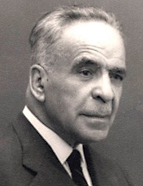

Sometimes, the contiguity between his interests in Portuguese history and literature is apparent right from the topic of his studies, as is the case with A literatura autonomista sob os Filipes [ Autonomist Literature under the Philips ] (1948) or Portuguese Literature and Overseas Expansion (vol. I: 1943; 2 nd ed., including vol. II: 1963-1964). Regarding the preparation of this book, Cintra (p. 74) reveals one of Hernâni Cidade ’ s working methods: he involved his students in his research, assigning them readings both at the BNL and at the library of the Academia das Ciências [Academy of Sciences] . When the focus seemed to be more limited to literature, the cultural and interdisciplinary approach was frequent, nonetheless. In the foreword to Lições de Cultura Luso-brasileira … [ Lessons on Luso-Brazilian Culture …] – a work that also brings literature and the visual arts closer together, Cidade argues that character, which manifests itself in an individual, can also be observed in nations and eras. Each nation would possess its distinct character, and each era its specific style : “ literati and artists, thinkers and politicians not only live in the same moral climate: one would say that they have collaborated in the same work, tuned into the same polyphony ” (pp. VII-VIII). The idea that eras and nations can be summarised in certain characteristics also appears in Portugal Histórico-cultural [Historical and cultural Portugal] , where the writers chosen are presented as representatives of each era. For example, in the Ensaio sobre a crise mental do século XVIII [ Essay on the mental crisis of the 18 th century ] (1929, initially outlined in lectures at the Faculdade de Letras do Porto [ School of Arts and Humanities of Porto ] ; incorporated, heavily redrafted, in Lições de Cultura e Literatura ... [ Lessons on Culture and Literature …] , vol. II), it is argued that, in contrast to the 17 th century Portuguese formalism, the 18 th century corresponded to a “ moral transformation ” that implied a taste for the real, “ a general tendency to get closer to truth and life ” , illustrated by the literary work of Father Teodoro de Almeida or the descriptive and philosophical poems of Father Macedo. According to Vítor Aguiar e Silva: “ In his neo-romantic and culturalist conception, Professor Hernâni Cidade understands and values literature and art as powerful forces of unification and awareness of ‘ the feeling of social dignity ’ , thus making sense of the union of history and culture – a union exemplarily embodied in those literary figures who are, according to Cidade, spiritual guides of the nation [ … ] ” ( As humanidades … , p. 112); or, in the words of Jacinto do Prado Coelho: “it marks a step forward in relation to Teófilo, because Hernâni Cidade gave literary studies a new orientation, both historical-cultural and, in keeping with the times, aesthetic-stylistic, also distinguishing himself from his contemporary Fidelino de Figueiredo” ([s.t.], p. 6).
This work is financed by national funds through FCT - Foundation for Science and Technology, I.P, in the scope of the projects UIDB/04311/2020 and UIDP/04311/2020.
